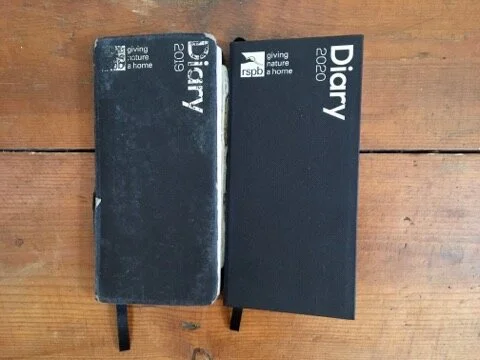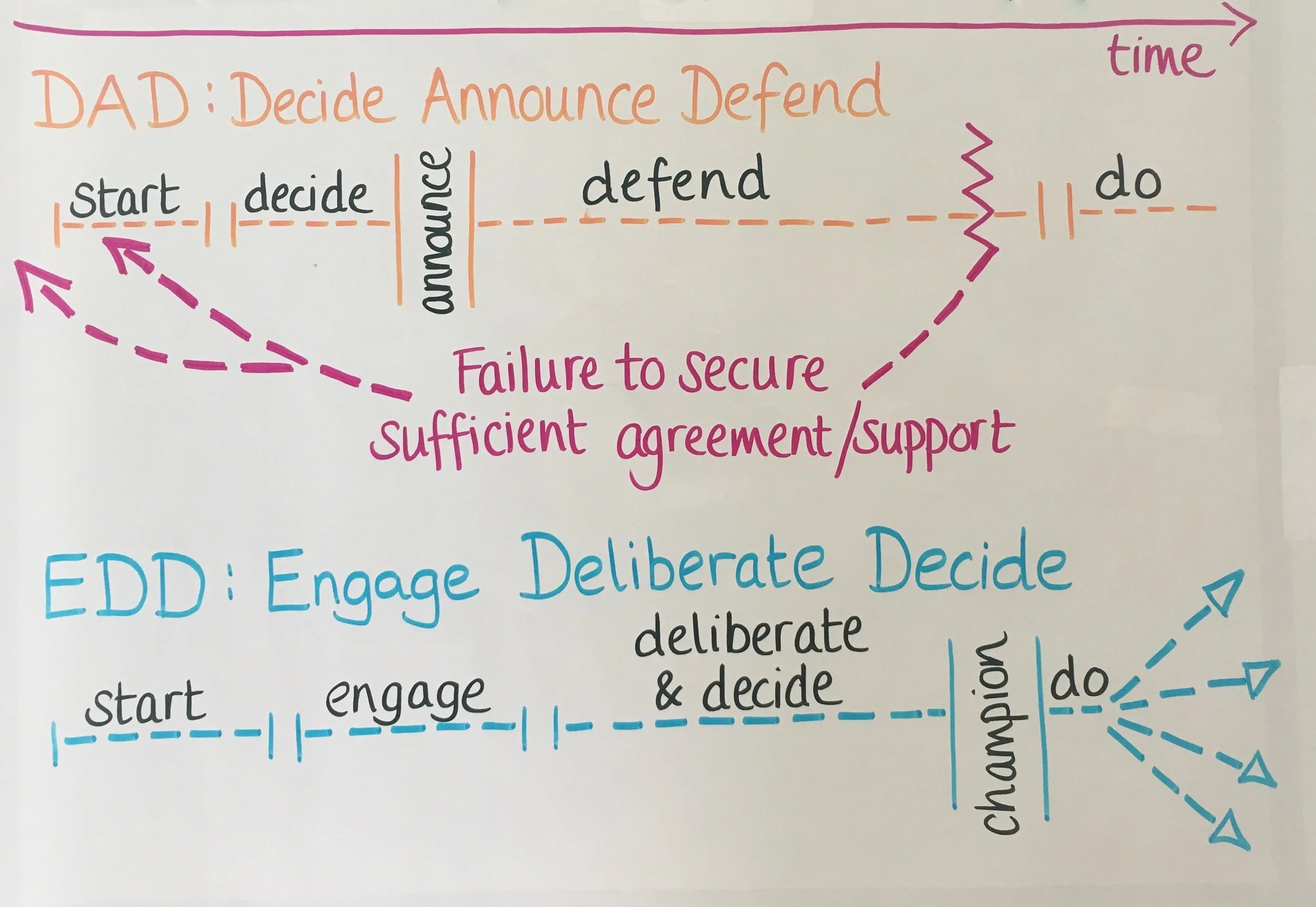How might your meetings needs to change, in light of the Covid-19 virus? Here are some tips on virtual meetings.
Carousel technique - one for your toolbox
Carousel is a great technique when you would like a group's discussions to benefit from the time-efficiency and increased air-time of small group 'parallel processing' while also having the opportunity to build on each others' ideas. It has a few more moving parts than some techniques, so here's some detailed guidance…
In-house facilitation training - what to think about
When clients come to me for in-house facilitation training, it’s such a great opportunity to create something which really supercharges people’s ability to have effective conversations about tricky things. There's some digging to do to unearth the treasure: what do you need to ask, to fit the training to what people most need to learn?
Holding the space for climate conversations
How do you feel about the climate emergency? How do you feel about your personal contribution to emissions of greenhouse gases? What do you see in your future?
And if you’re a facilitator, or have some other role in helping other people have conversations about the climate, what do you do when strong emotions show up?
101 uses for a paperclip
We needed a quick creative exercise which would inject some light-hearted improvisational spirit into a large group who didn’t know each other very well yet. We had a few minutes before asking them to work in table groups to generate a long-list of ideas for solving a complex environmental and health problem. We wanted to give them some practice of letting go of the need to find quality and embrace quantity!
We didn’t have a lot of equipment or space, so we made up "101 uses for a paperclip".
The stake in the ground - a change strategy
Out with the old...
I treasure this hiatus between Christmas and New Year. No urgent client work to complete, no meetings, a precious bit of breathing space to reset, catch up, look forward.
By the end of the year my diary is battered and worn. The new one holds such promise and possibility! Clean, smooth and with clear edges.
Reflections from the IAF Conference in Birmingham, 18th and 19th October 2019
There were around 100 facilitators in one room in Birmingham earlier this month – from all parts of Great Britain, also Ireland, Belgium, Netherlands, Italy, Spain, Portugal, Canada… What is the collective noun for facilitators?
All that and more in this round up of personal reflections on the IAF England & Wales Conference.
IAF CPF Assessment - files from Birmingham Conference
This post is aimed at people who came along to the CPF / Professional Development session during the IAF England and Wales Conference in Birmingham in October.
Jet Proost has sent this article which explains the difference between training and process facilitation, as defined in the CPF.
A postcard to my future self
Inspiring places
DAD and EDD: two approaches to engaging stakeholders in decisions
When an organisation has to make a decision, when is the best time to engage stakeholders about the best option?
If you only ask people what they think when you’ve already made up your mind, you’re taking a big risk. Here’s a quick introduction to Decide-Announce-Defend (Abandon), and its more enlightened cousin Engage-Deliberate-Decide.
Six sources of influence for behaviour change
Sometimes the sustainability changes you want to bring about will rely on people changing their individual, everyday behaviour: using resources more efficiently, pulling each other up on unsafe practices, counteracting unconscious bias.
According to Patterson et al, there are six 'sources of influence' you can use to motivate people and ensure they have the ability to carry out the better behaviour. Find out more.
Ten top tips for working with multi-language groups
Tools for strategic sustainability
When we get caught up in enthusiastic attention being paid to an issue – like single-use plastic or palm oil – it can knock our planned approach off-course. Or we can use it as an entry point for some strategic thinking. If you get the opportunity to strategise with senior leaders, what are the tools to help you?
If you want to do a more rigorous analysis of your sustainability impacts and opportunities, people I interviewed for Change Management for Sustainable Development recommended a range of frameworks and tools. Here they are, so you can use them too.
What is a Citizens' Assembly?
Citizens’ Assemblies are having a bit of a moment in the UK, with Extinction Rebellion calling for them, and national governments, parliaments and local authorities commissioning them on subjects including the future of social care, air quality, transport and climate change. But what exactly is a Citizens’ Assembly?
Testing the water for collaboration
The most important sustainability challenges can only be solved by system change. And system change happens when people work together – collaborate - to change the system.
Collaboration is successful when the collaborators share some compelling aims. It’s not enough for everyone to nod along from the side-lines – they need to be rolling their sleeves up and getting stuck in to the game. How do you help potential collaborators find their shared aims?
What's your mandate?
5 Useful Tips to Work with Interpreters (and Translators) in a Multilingual Event
In this day and age, with the advent of globalisation, events attended by international audiences are commonplace. In such situations, organisers may need to hire professionals who will provide translation services. Guest post from Deborah Chobanian advises us on how to get the best from interpreters at an event.
Guiding a group through the adventure forest
One of the most helpful things a facilitator does, is to transform how groups feel about the messy, sticky, unfocused middle of meetings. Facilitators often call this the ‘groan zone’. The phase of a meeting when conversations go a bit random, and it feels as if no progress is being made.
But what if we reframe the groan zone: if we help groups explore and appreciate the wonders of the ‘adventure forest’?

















